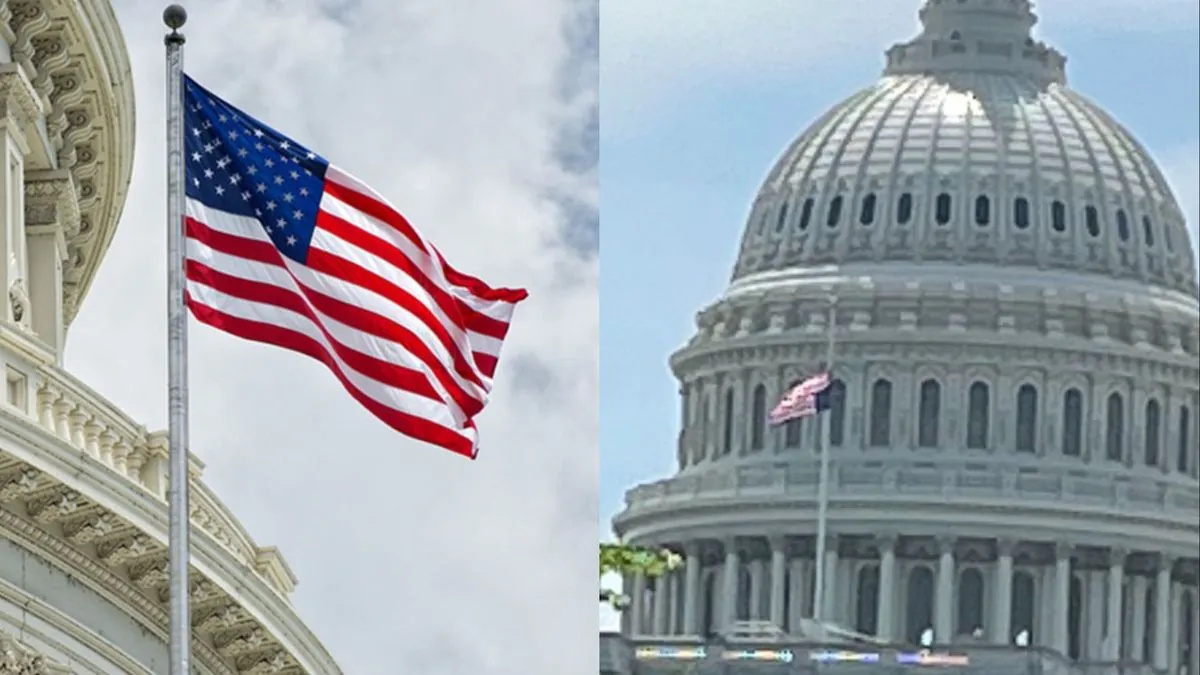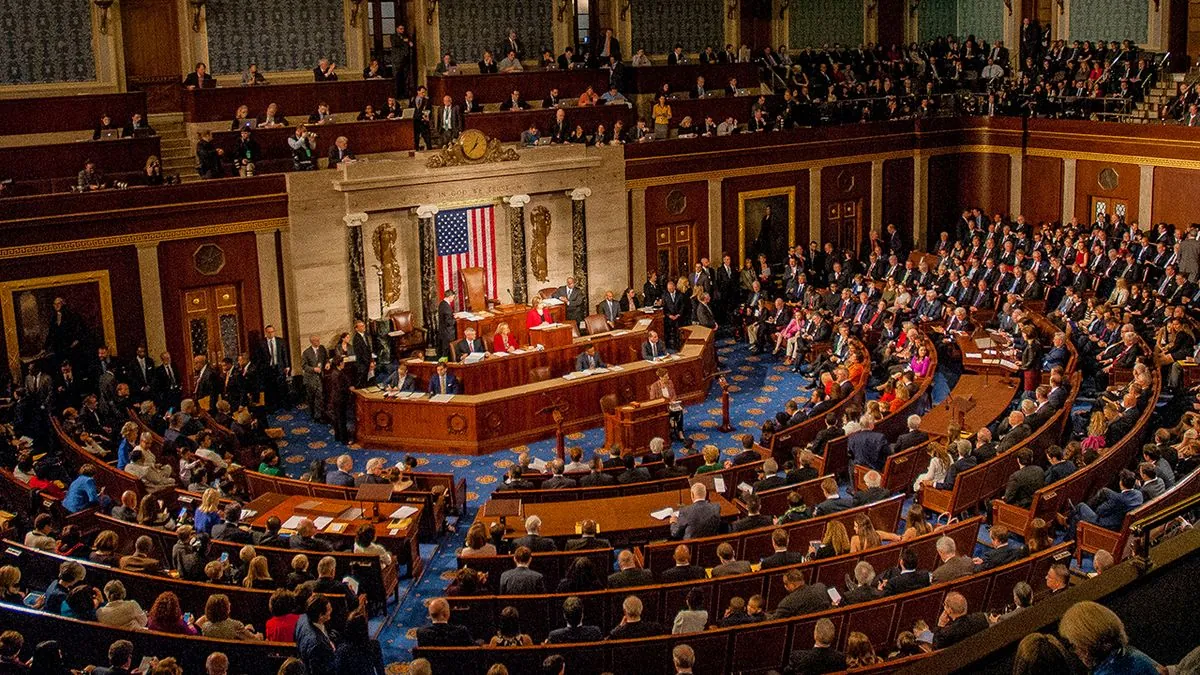U.S. House Vote on Spending Bill Sparks Shutdown Concerns
Republican-led House to vote on spending bill with voting rules, risking government shutdown. Senate opposition and internal GOP challenges complicate passage as October 1 deadline looms.

The U.S. House of Representatives, under Republican control, is set to vote on a crucial spending bill that includes stricter voting regulations. This move could potentially lead to a partial government shutdown, highlighting the ongoing tension between the two chambers of Congress. The vote, scheduled for Wednesday, comes as lawmakers face a tight deadline to pass spending legislation before the start of the new fiscal year on October 1, 2024.
The proposed bill pairs essential funding measures with tighter voting rules, requiring proof of U.S. citizenship for voter registration. This requirement has become a contentious issue, reflecting the deep political divide in Washington. Republicans, influenced by concerns about election integrity, argue that the measure is necessary to prevent non-citizens from voting. In contrast, Democrats view the bill as an attempt to suppress voter participation.

The debate surrounding this bill underscores the complexities of the U.S. legislative system. With 435 voting members in the House, the current Republican majority holds a narrow 220-211 advantage, leaving little room for dissent within their ranks. This slim margin has led to internal challenges, with some Republican representatives expressing opposition to the bill.
House Speaker Mike Johnson expressed hope for the bill's passage, stating on CNBC, "I certainly hope that it passes." However, the Speaker's optimism is tempered by recent experiences of Republican infighting, which has often paralyzed legislative efforts over the past two years.
Even if the bill clears the House, it faces certain rejection in the Democratic-majority Senate. This impasse leaves Congress with less than two weeks to resolve their differences before government funding expires, risking a shutdown. Since 1976, the U.S. has experienced 21 government shutdowns, with the longest lasting 35 days from 2018 to 2019.
Senate Republican Leader Mitch McConnell appeared less enthusiastic about the potential conflict, stating, "I'm for whatever avoids a government shutdown." His comments suggest a growing concern among some Republicans about the political consequences of a shutdown so close to the November 5, 2024, election.
"We'll see if this vote gets called. We've been down this road before."
The current situation is further complicated by an approaching debt ceiling deadline on January 1, 2025. Congress must address this issue to avoid defaulting on more than $35 trillion in federal government debt. The U.S. national debt, which exceeded $31 trillion for the first time in 2022, remains a significant concern for lawmakers and economists alike.
As the 118th United States Congress navigates these challenges, the outcome of Wednesday's vote will be crucial in determining the path forward. The ongoing debate not only highlights the ideological differences between the two major parties but also underscores the complex nature of U.S. fiscal policy and election law.


































